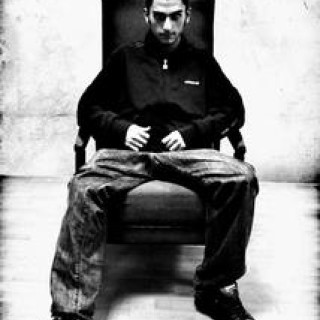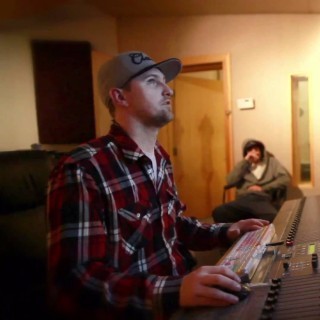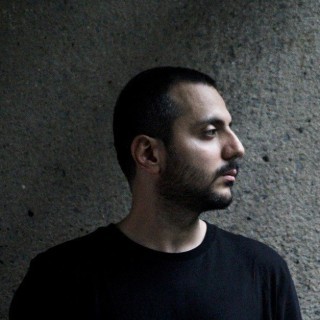
86
Poetry
Tekst piosenki
SCENE .—The Hall of the Council of Ten assembled with the additional Senators, who, on the Trials of the Conspirators for the Treason of MARINO FALIERO, composed what was called the Giunta,—Guards, Officers, etc., etc. ISRAEL BERTUCCIO and PHILIP CALENDARO as Prisoners. BERTRAM, LIONI, and Witnesses, etc.
The Chief of the Ten, BENINTENDE.
Ben. There now rests, after such conviction of
Their manifold and manifest offences,
But to pronounce on these obdurate men
The sentence of the Law:—a grievous task
To those who hear, and those who speak. Alas!
That it should fall to me! and that my days
Of office should be stigmatised through all
The years of coming time, as bearing record
To this most foul and complicated treason
Against a just and free state, known to all
The earth as being the Christian bulwark 'gainst
The Saracen and the schismatic Greek,
The savage Hun, and not less barbarous Frank;
A City which has opened India's wealth
To Europe; the last Roman refuge from
O'erwhelming Attila; the Ocean's Queen;
Proud Genoa's prouder rival! 'Tis to sap
The throne of such a City, these lost men
Have risked and forfeited their worthless lives—
So let them die the death.
I. Ber. We are prepared;
Your racks have done that for us. Let us die.
Ben. If ye have that to say which would obtain
Abatement of your punishment, the Giunta
Will hear you; if you have aught to confess,
Now is your time,—perhaps it may avail ye.
I. Ber. We stand to hear, and not to speak.
Ben. Your crimes
Are fully proved by your accomplices,
And all which Circumstance can add to aid them;
Yet we would hear from your own lips complete
Avowal of your treason: on the verge
Of that dread gulf which none repass, the truth
Alone can profit you on earth or Heaven—
Say, then, what was your motive?
I. Ber. Justice!
Ben. What
Your object?
I. Ber. Freedom!
Ben. You are brief, sir.
I. Ber. So my life grows: I
Was bred a soldier, not a senator.
Ben. Perhaps you think by this blunt brevity
To brave your judges to postpone the sentence?
I. Ber. Do you be brief as I am, and believe me,
I shall prefer that mercy to your pardon.
Ben. Is this your sole reply to the Tribunal?
I. Ber. Go, ask your racks what they have wrung from us,
Or place us there again; we have still some blood left,
And some slight sense of pain in these wrenched limbs:
But this ye dare not do; for if we die there—
And you have left us little life to spend
Upon your engines, gorged with pangs already—
Ye lose the public spectacle, with which
You would appal your slaves to further slavery!
Groans are not words, nor agony assent,
Nor affirmation Truth, if Nature's sense
Should overcome the soul into a lie,
For a short respite—must we bear or die?
Ben. Say, who were your accomplices?
I. Ber. The Senate.
Ben. What do you mean?
I. Ber. Ask of the suffering people,
Whom your patrician crimes have driven to crime.
Ben. You know the Doge?
I. Ber. I served with him at Zara
In the field, when you were pleading here your way
To present office; we exposed our lives,
While you but hazarded the lives of others,
Alike by accusation or defence;
And for the rest, all Venice knows her Doge,
Through his great actions, and the Senate's insults.
Ben. You have held conference with him?
I. Ber. I am weary—
Even wearier of your questions than your tortures:
I pray you pass to judgment.
Ben. It is coming.
And you, too, Philip Calendaro, what
Have you to say why you should not be doomed?
Cal. I never was a man of many words,
And now have few left worth the utterance.
Ben. A further application of yon engine
May change your tone.
Cal. Most true, it will do so;
A former application did so; but
It will not change my words, or, if it did—
Ben. What then?
Cal. Will my avowal on yon rack
Stand good in law?
Ben. Assuredly.
Cal. Whoe'er
The culprit be whom I accuse of treason?
Ben. Without doubt, he will be brought up to trial.
Cal. And on this testimony would he perish?
Ben. So your confession be detailed and full,
He will stand here in peril of his life.
Cal. Then look well to thy proud self, President!
For by the Eternity which yawns before me,
I swear that thou, and only thou, shall be
The traitor I denounce upon that rack,
If I be stretched there for the second time.
One of The Giunta.
Lord President,'twere best proceed to judgment;
There is no more to be drawn from these men.
Ben. Unhappy men! prepare for instant death.
The nature of your crime—our law—and peril
The State now stands in, leave not an hour's respite.
Guards! lead them forth, and upon the balcony
Of the red columns, where, on festal Thursday,
The Doge stands to behold the chase of bulls,
Let them be justified: and leave exposed
Their wavering relics, in the place of judgment,
To the full view of the assembled people!
And Heaven have mercy on their souls!
The Giunta. Amen!
I. Ber. Signors, farewell! we shall not all again
Meet in one place.
Ben. And lest they should essay
To stir up the distracted multitude—
Guards! let their mouths be gagged even in the act
Of execution. Lead them hence!
Cal. What! must we
Not even say farewell to some fond friend,
Nor leave a last word with our confessor?
Ben. A priest is waiting in the antechamber;
But, for your friends, such interviews would be
Painful to them, and useless all to you.
Cal. I knew that we were gagged in life; at least
All those who had not heart to risk their lives
Upon their open thoughts; but still I deemed
That in the last few moments, the same idle
Freedom of speech accorded to the dying,
Would not now be denied to us; but since——
I. Ber. Even let them have their way, brave Calendaro!
What matter a few syllables? let's die
Without the slightest show of favour from them;
So shall our blood more readily arise
To Heaven against them, and more testify
To their atrocities, than could a volume
Spoken or written of our dying words!
They tremble at our voices—nay, they dread
Our very silence—let them live in fear!
Leave them unto their thoughts, and let us now
Address our own above!—Lead on; we are ready.
Cal. Israel, hadst thou but hearkened unto me
It had not now been thus; and yon pale villain,
The coward Bertram, would——
I. Ber. Peace, Calendaro!
What brooks it now to ponder upon this?
Bert. Alas! I fain you died in peace with me:
I did not seek this task; 'twas forced upon me:
Say, you forgive me, though I never can
Retrieve my own forgiveness—frown not thus!
I. Ber. I die and pardon thee!
Cal. (spitting at him). I die and scorn thee!
[Exeunt ISRAEL BERTUCCIO and PHILIP CALENDARO, Guards, etc.
Ben. Now that these criminals have been disposed of,
'Tis time that we proceed to pass our sentence
Upon the greatest traitor upon record
In any annals, the Doge Faliero!
The proofs and process are complete; the time
And crime require a quick procedure: shall
He now be called in to receive the award?
The Giunta. Aye, aye.
Ben. Avogadori, order that the Doge
Be brought before the Council.
One of The Giunta. And the rest,
When shall they be brought up?
Ben. When all the Chiefs
Have been disposed of. Some have fled to Chiozza;
But there are thousands in pursuit of them,
And such precaution ta'en on terra firma,
As well as in the islands, that we hope
None will escape to utter in strange lands
His libellous tale of treasons 'gainst the Senate.
Enter the DOGE as Prisoner, with Guards, etc., etc.
Ben. Doge—for such still you are, and by the law
Must be considered, till the hour shall come
When you must doff the Ducal Bonnet from
That head, which could not wear a crown more noble
Than Empires can confer, in quiet honour,
But it must plot to overthrow your peers,
Who made you what you are, and quench in blood
A City's glory—we have laid already
Before you in your chamber at full length,
By the Avogadori, all the proofs
Which have appeared against you; and more ample
Ne'er reared their sanguinary shadows to
Confront a traitor. What have you to say
In your defence?
Doge. What shall I say to ye,
Since my defence must be your condemnation?
You are at once offenders and accusers,
Judges and Executioners!—Proceed
Upon your power.
Ben. Your chief accomplices
Having confessed, there is no hope for you.
Doge. And who be they?
Ben. In number many; but
The first now stands before you in the court,
Bertram of Bergamo,—would you question him?
Doge (looking at him contemptuously). No.
Ben. And two others, Israel Bertuccio,
And Philip Calendaro, have admitted
Their fellowship in treason with the Doge!
Doge. And where are they?
Ben. Gone to their place, and now
Answering to Heaven for what they did on earth.
Doge. Ah! the plebeian Brutus, is he gone?
And the quick Cassius of the arsenal?—
How did they meet their doom?
Ben. Think of your own:
It is approaching. You decline to plead, then?
Doge. I cannot plead to my inferiors, nor
Can recognise your legal power to try me.
Show me the law!
Ben. On great emergencies,
The law must be remodelled or amended:
Our fathers had not fixed the punishment
Of such a crime, as on the old Roman tables
The sentence against parricide was left
In pure forgetfulness; they could not render
That penal, which had neither name nor thought
In their great bosoms; who would have foreseen
That Nature could be filed to such a crime
As sons 'gainst sires, and princes 'gainst their realms?
Your sin hath made us make a law which will
Become a precedent 'gainst such haught traitors,
As would with treason mount to tyranny;
Not even contented with a sceptre, till
They can convert it to a two-edged sword!
Was not the place of Doge sufficient for ye?
What's nobler than the signory of Venice?
Doge. The signory of Venice! You betrayed me—
You—you, who sit there, traitors as ye are!
From my equality with you in birth,
And my superiority in action,
You drew me from my honourable toils
In distant lands—on flood, in field, in cities—
You singled me out like a victim to
Stand crowned, but bound and helpless, at the altar
Where you alone could minister. I knew not,
I sought not, wished not, dreamed not the election,
Which reached me first at Rome, and I obeyed;
But found on my arrival, that, besides
The jealous vigilance which always led you
To mock and mar your Sovereign's best intents,
You had, even in the interregnum of
My journey to the capital, curtailed
And mutilated the few privileges
Yet left the Duke: all this I bore, and would
Have borne, until my very hearth was stained
By the pollution of your ribaldry,
And he, the ribald, whom I see amongst you—
Fit judge in such tribunal!——
Ben. (interrupting him). Michel Steno
Is here in virtue of his office, as
One of the Forty; "the Ten" having craved
A Giunta of patricians from the Senate
To aid our judgment in a trial arduous
And novel as the present: he was set
Free from the penalty pronounced upon him,
Because the Doge, who should protect the law,
Seeking to abrogate all law, can claim
No punishment of others by the statutes
Which he himself denies and violates!
Doge. His PUNISHMENT! I rather see him there,
Where he now sits, to glut him with my death,
Than in the mockery of castigation,
Which your foul, outward, juggling show of justice
Decreed as sentence! Base as was his crime,
'Twas purity compared with your protection.
Ben. And can it be, that the great Doge of Venice,
With three parts of a century of years
And honours on his head, could thus allow
His fury, like an angry boy's, to master
All Feeling, Wisdom, Faith and Fear, on such
A provocation as a young man's petulance?
Doge. A spark creates the flame—'tis the last drop
Which makes the cup run o'er, and mine was full
Already: you oppressed the Prince and people;
I would have freed both, and have failed in both:
The price of such success would have been glory,
Vengeance, and victory, and such a name
As would have made Venetian history
Rival to that of Greece and Syracuse
When they were freed, and flourished ages after,
And mine to Gelon and to Thrasybulus:
Failing, I know the penalty of failure
Is present infamy and death—the future
Will judge, when Venice is no more, or free;
Till then, the truth is in abeyance. Pause not;
I would have shown no mercy, and I seek none;
My life was staked upon a mighty hazard,
And being lost, take what I would have taken!
I would have stood alone amidst your tombs:
Now you may flock round mine, and trample on it,
As you have done upon my heart while living.
Ben. You do confess then, and admit the justice
Of our Tribunal?
Doge. I confess to have failed;
Fortune is female: from my youth her favours
Were not withheld, the fault was mine to hope
Her former smiles again at this late hour.
Ben. You do not then in aught arraign our equity?
Doge. Noble Venetians! stir me not with questions.
I am resigned to the worst; but in me still
Have something of the blood of brighter days,
And am not over-patient. Pray you, spare me
Further interrogation, which boots nothing,
Except to turn a trial to debate.
I shall but answer that which will offend you,
And please your enemies—a host already;
'Tis true, these sullen walls should yield no echo:
But walls have ears—nay, more, they have tongues; and if
There were no other way for Truth to o'erleap them,
You who condemn me, you who fear and slay me,
Yet could not bear in silence to your graves
What you would hear from me of Good or Evil;
The secret were too mighty for your souls:
Then let it sleep in mine, unless you court
A danger which would double that you escape.
Such my defence would be, had I full scope
To make it famous; for true words are things,
And dying men's are things which long outlive,
And oftentimes avenge them; bury mine,
If ye would fain survive me: take this counsel,
And though too oft ye make me live in wrath,
Let me die calmly; you may grant me this;
I deny nothing—defend nothing—nothing
I ask of you, but silence for myself,
And sentence from the Court!
Ben. This full admission
Spares us the harsh necessity of ordering
The torture to elicit the whole truth.
Doge. The torture! you have put me there already,
Daily since I was Doge; but if you will
Add the corporeal rack, you may: these limbs
Will yield with age to crushing iron; but
There's that within my heart shall strain your engines.
Enter an OFFICER.
Officer. Noble Venetians! Duchess Faliero
Requests admission to the Giunta's presence.
Ben. Say, Conscript Fathers, shall she be admitted?
One of The Giunta. She may have revelations of importance
Unto the state, to justify compliance
With her request.
Ben. Is this the general will?
All. It is.
Doge. Oh, admirable laws of Venice!
Which would admit the wife, in the full hope
That she might testify against the husband.
What glory to the chaste Venetian dames!
But such blasphemers 'gainst all Honour, as
Sit here, do well to act in their vocation.
Now, villain Steno! if this woman fail,
I'll pardon thee thy lie, and thy escape,
And my own violent death, and thy vile life.
The DUCHESS enters.
Ben. Lady! this just Tribunal has resolved,
Though the request be strange, to grant it, and
Whatever be its purport, to accord
A patient hearing with the due respect
Which fits your ancestry, your rank, and virtues:
But you turn pale—ho! there, look to the Lady!
Place a chair instantly.
Ang. A moment's faintness—
'Tis past; I pray you pardon me,—I sit not
In presence of my Prince and of my husband,
While he is on his feet.
Ben. Your pleasure, Lady?
Ang. Strange rumours, but most true, if all I hear
And see be sooth, have reached me, and I come
To know the worst, even at the worst; forgive
The abruptness of my entrance and my bearing.
Is it—I cannot speak—I cannot shape
The question—but you answer it ere spoken,
With eyes averted, and with gloomy brows—
Oh God! this is the silence of the grave!
Ben. (after a pause). Spare us, and spare thyself the repetition
Of our most awful, but inexorable
Duty to Heaven and man!
Ang. Yet speak; I cannot—
I cannot—no—even now believe these things.
Is he condemned?
Ben. Alas!
Ang. And was he guilty?
Ben. Lady! the natural distraction of
Thy thoughts at such a moment makes the question
Merit forgiveness; else a doubt like this
Against a just and paramount tribunal
Were deep offence. But question even the Doge,
And if he can deny the proofs, believe him
Guiltless as thy own bosom.
Ang. Is it so?
My Lord, my Sovereign, my poor father's friend,
The mighty in the field, the sage in Council,
Unsay the words of this man!—thou art silent!
Ben. He hath already owned to his own guilt,
Nor, as thou see'st, doth he deny it now.
Ang. Aye, but he must not die! Spare his few years,
Which Grief and Shame will soon cut down to days!
One day of baffled crime must not efface
Near sixteen lustres crowned with brave acts.
Ben. His doom must be fulfilled without remission
Of time or penalty—'tis a decree.
Ang. He hath been guilty, but there may be mercy.
Ben. Not in this case with justice.
Ang. Alas! Signor,
He who is only just is cruel; who
Upon the earth would live were all judged justly?
Ben. His punishment is safety to the State.
Ang. He was a subject, and hath served the State;
He was your General, and hath saved the State;
He is your Sovereign, and hath ruled the State.
One of the Council. He is a traitor, and betrayed the State.
Ang. And, but for him, there now had been no State
To save or to destroy; and you, who sit
There to pronounce the death of your deliverer,
Had now been groaning at a Moslem oar,
Or digging in the Hunnish mines in fetters!
One of the Council. No, Lady, there are others who would die
Rather than breathe in slavery!
Ang. If there are so
Within these walls, thou art not of the number:
The truly brave are generous to the fallen!—
Is there no hope?
Ben. Lady, it cannot be.
Ang. (turning to the Doge).
Then die, Faliero! since it must be so;
But with the spirit of my father's friend.
Thou hast been guilty of a great offence,
Half cancelled by the harshness of these men.
I would have sued to them, have prayed to them.
Have begged as famished mendicants for bread,
Have wept as they will cry unto their God
For mercy, and be answered as they answer,—
Had it been fitting for thy name or mine,
And if the cruelty in their cold eyes
Had not announced the heartless wrath within.
Then, as a Prince, address thee to thy doom!
Doge. I have lived too long not to know how to die!
Thy suing to these men were but the bleating
Of the lamb to the butcher, or the cry
Of seamen to the surge: I would not take
A life eternal, granted at the hands
Of wretches, from whose monstrous villanies
I sought to free the groaning nations!
Michel Steno. Doge,
A word with thee, and with this noble lady,
Whom I have grievously offended. Would
Sorrow, or shame, or penance on my part,
Could cancel the inexorable past!
But since that cannot be, as Christians let us
Say farewell, and in peace: with full contrition
I crave, not pardon, but compassion from you,
And give, however weak, my prayers for both.
Ang. Sage Benintende, now chief Judge of Venice,
I speak to thee in answer to yon Signor.
Inform the ribald Steno, that his words
Ne'er weighed in mind with Loredano's daughter,
Further than to create a moment's pity
For such as he is: would that others had
Despised him as I pity! I prefer
My honour to a thousand lives, could such
Be multiplied in mine, but would not have
A single life of others lost for that
Which nothing human can impugn—the sense
Of Virtue, looking not to what is called
A good name for reward, but to itself.
To me the scorner's words were as the wind
Unto the rock: but as there are—alas!
Spirits more sensitive, on which such things
Light as the Whirlwind on the waters; souls
To whom Dishonour's shadow is a substance
More terrible than Death, here and hereafter;
Men whose vice is to start at Vice's scoffing,
And who, though proof against all blandishments
Of pleasure, and all pangs of Pain, are feeble
When the proud name on which they pinnacled
Their hopes is breathed on, jealous as the eagle
Of her high aiery; let what we now
Behold, and feel, and suffer, be a lesson
To wretches how they tamper in their spleen
With beings of a higher order. Insects
Have made the lion mad ere now; a shaft
I' the heel o'erthrew the bravest of the brave;
A wife's Dishonour was the bane of Troy;
A wife's Dishonour unkinged Rome for ever;
An injured husband brought the Gauls to Clusium,
And thence to Rome, which perished for a time;
An obscene gesture cost Caligula
His life, while Earth yet bore his cruelties;
A virgin's wrong made Spain a Moorish province;
And Steno's lie, couched in two worthless lines,
Hath decimated Venice, put in peril
A Senate which hath stood eight hundred years,
Discrowned a Prince, cut off his crownless head,
And forged new fetters for a groaning people!
Let the poor wretch, like to the courtesan
Who fired Persepolis, be proud of this,
If it so please him—'twere a pride fit for him!
But let him not insult the last hours of
Him, who, whate'er he now is, was a Hero,
By the intrusion of his very prayers;
Nothing of good can come from such a source,
Nor would we aught with him, nor now, nor ever:
We leave him to himself, that lowest depth
Of human baseness. Pardon is for men,
And not for reptiles—we have none for Steno,
And no resentment: things like him must sting,
And higher beings suffer; 'tis the charter
Of Life. The man who dies by the adder's fang
May have the crawler crushed, but feels no anger:
'Twas the worm's nature; and some men are worms
In soul, more than the living things of tombs.
Doge (to Ben.).
Signor! complete that which you deem your duty.
Ben. Before we can proceed upon that duty,
We would request the Princess to withdraw;
'Twill move her too much to be witness to it.
Ang. I know it will, and yet I must endure it,
For 'tis a part of mine—I will not quit,
Except by force, my husband's side—Proceed!
Nay, fear not either shriek, or sigh, or tear;
Though my heart burst, it shall be silent.—Speak!
I have that within which shall o'ermaster All.
Ben. Marino Faliero, Doge of Venice,
Count of Val di Marino, Senator,
And some time General of the Fleet and Army,
Noble Venetian, many times and oft
Intrusted by the state with high employments,
Even to the highest, listen to the sentence.
Convict by many witnesses and proofs,
And by thine own confession, of the guilt
Of Treachery and Treason, yet unheard of
Until this trial—the decree is Death—
Thy goods are confiscate unto the State,
Thy name is razed from out her records, save
Upon a public day of thanksgiving
For this our most miraculous deliverance,
When thou art noted in our calendars
With earthquakes, pestilence, and foreign foes,
And the great Enemy of man, as subject
Of grateful masses for Heaven's grace in snatching
Our lives and country from thy wickedness.
The place wherein as Doge thou shouldst be painted
With thine illustrious predecessors, is
To be left vacant, with a death-black veil
Flung over these dim words engraved beneath,—
"This place is of Marino Faliero,
Decapitated for his crimes."
Doge. "His crimes!"
But let it be so:—it will be in vain.
The veil which blackens o'er this blighted name,
And hides, or seems to hide, these lineaments,
Shall draw more gazers than the thousand portraits
Which glitter round it in their pictured trappings—
Your delegated slaves—the people's tyrants!
"Decapitated for his crimes!"—What crimes?
Were it not better to record the facts,
So that the contemplator might approve,
Or at the least learn whence the crimes arose?
When the beholder knows a Doge conspired,
Let him be told the cause—it is your history.
Ben. Time must reply to that; our sons will judge
Their fathers' judgment, which I now pronounce.
As Doge, clad in the ducal robes and Cap,
Thou shalt be led hence to the Giants' Staircase,
Where thou and all our Princes are invested;
And there, the Ducal Crown being first resumed
Upon the spot where it was first assumed,
Thy head shall be struck off; and Heaven have mercy
Upon thy soul!
Doge. Is this the Giunta's sentence?
Ben. It is.
Doge. I can endure it.—And the time?
Ben. Must be immediate.—Make thy peace with God:
Within an hour thou must be in His presence.
Doge. I am already; and my blood will rise
To Heaven before the souls of those who shed it.
Are all my lands confiscated?
Ben. They are;
And goods, and jewels, and all kind of treasure,
Except two thousand ducats—these dispose of.
Doge. That's harsh.—I would have fain reserved the lands
Near to Treviso, which I hold by investment
From Laurence the Count-bishop of Ceneda,
In fief perpetual to myself and heirs,
To portion them (leaving my city spoil,
My palace and my treasures, to your forfeit)
Between my consort and my kinsmen.
Ben. These
Lie under the state's ban—their Chief, thy nephew,
In peril of his own life; but the Council
Postpones his trial for the present. If
Thou will'st a state unto thy widowed Princess,
Fear not, for we will do her justice.
Ang. Signors,
I share not in your spoil! From henceforth, know
I am devoted unto God alone,
And take my refuge in the cloister.
Doge. Come!
The hour may be a hard one, but 'twill end.
Have I aught else to undergo save Death?
Ben. You have nought to do, except confess and die.
The priest is robed, the scimitar is bare,
And both await without.—But, above all,
Think not to speak unto the people; they
Are now by thousands swarming at the gates,
But these are closed: the Ten, the Avogadori,
The Giunta, and the chief men of the Forty,
Alone will be beholders of thy doom,
And they are ready to attend the Doge.
Doge. The Doge!
Ben. Yes, Doge, thou hast lived and thou shalt die
A Sovereign; till the moment which precedes
The separation of that head and trunk,
That ducal crown and head shall be united.
Thou hast forgot thy dignity in deigning
To plot with petty traitors; not so we,
Who in the very punishment acknowledge
The Prince. Thy vile accomplices have died
The dog's death, and the wolf's; but them shall fall
As falls the lion by the hunters, girt
By those who feel a proud compassion for thee,
And mourn even the inevitable death
Provoked by thy wild wrath, and regal fierceness.
Now we remit thee to thy preparation:
Let it be brief, and we ourselves will be
Thy guides unto the place where first we were
United to thee as thy subjects, and
Thy Senate; and must now be parted from thee
As such for ever, on the self-same spot.
Guards! form the Doge's escort to his chamber.
Tłumaczenie
Brak
Polecani artyści
Najnowsze teksty piosenek
Sprawdź teksty piosenek i albumy dodane w ciągu ostatnich 7 dni


























